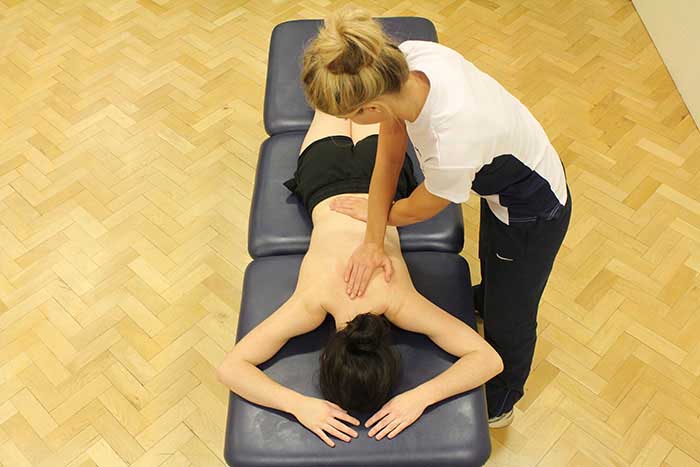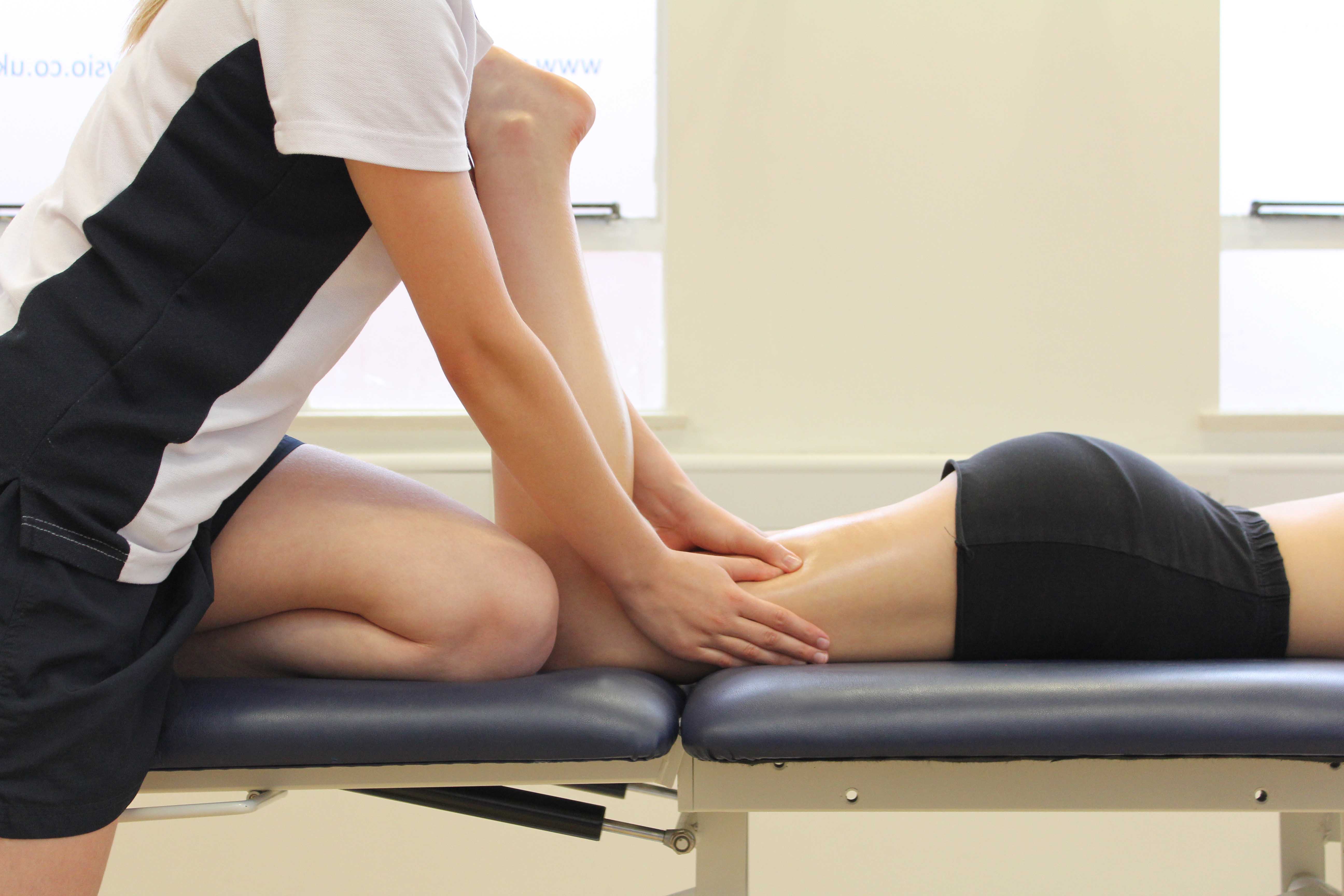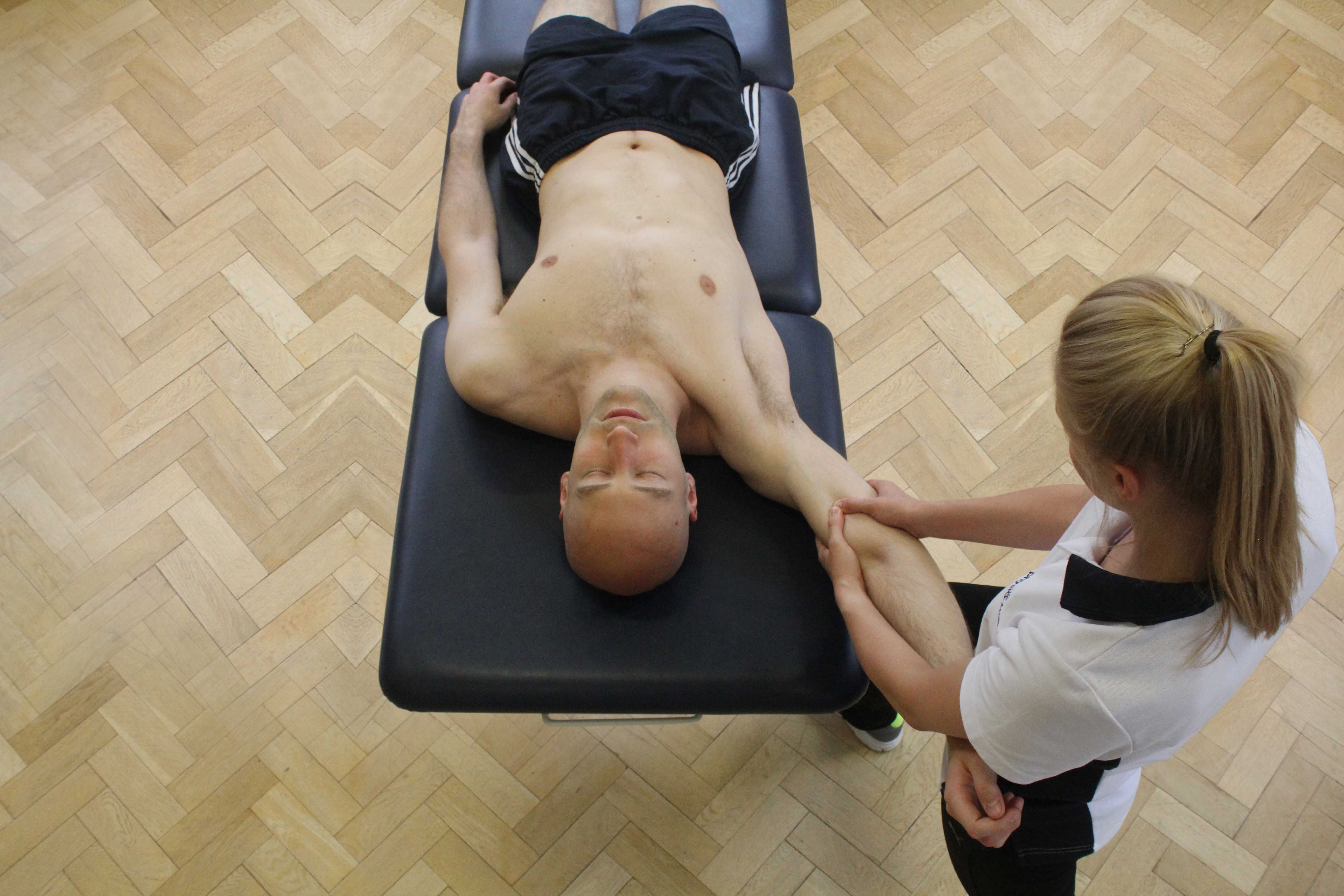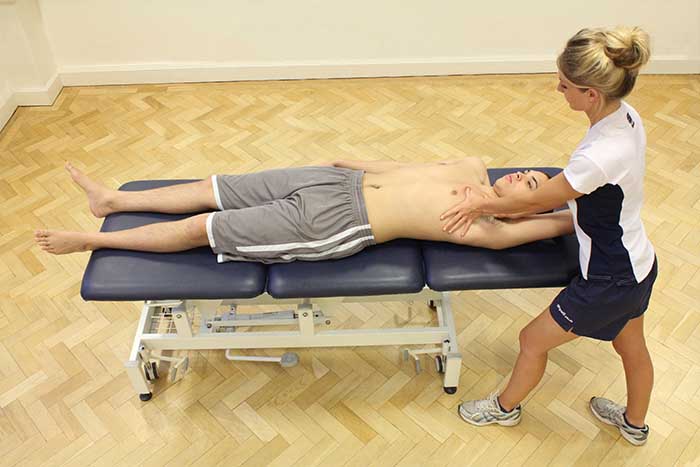Myofascial release is a soft tissue massage treatment to help increase myofascial mobility and reduce pain within the musculoskeletal system. Myofascial is connective tissue that is situated under the skin and surrounds muscle, bone, ligaments and tendons. Soft tissues in the body can become restricted due to injury, overuse, inactivity and result in pain, tension and reduced blood flow. Myofascial release is a slow, effective technique to relief symptoms of fascia restrictions. Massage therapists working at Physio.co.uk use myofascial release to treat many conditions.
What is myofascial release?
Myofascial release massage is a soft tissue treatment of skeletal muscle pain and immobility. Myofascial release involves applying gentle pressure into connective tissue and fascia. Fascia is a structure of connective tissues that surround muscles, blood vessels and nerves. In healthy conditions fascia tissue is relaxed and wavy in configuration. The fascial system can provide cushioning support so that movement is increased and without pain. A myofascial release technique helps to detect restrictions and can facilitate the release of fascia. Injury, surgery, poor posture or inflammation of tissues can create myofascial restrictions that produce pressure and pain upon sensitive structures.

When is myofascial release used?
Myofascial release is a massage technique that is used to:
 Above: Soft tissue massage of planta facia
Above: Soft tissue massage of planta facia Myofascial release helps decrease pain. Myofascial release treats painful areas by breaking through restrictions and relieving tightness. Myofascial release increases blood flow and temperature of soft tissues which can also help reduce pain.
Myofascial release helps release restrictive tissues such as scar tissue. After injury, scar tissue can be formed as part of the natural healing process. Scar tissue can restrict the movement of fascia and cause pain. Myofascial release helps loosen scar tissue and help restore normal function of the tissue.
Myofascial release is commonly used as a relaxation technique. Myofascial release is performed in a slow and precise way. The slow movements of myofascial release across the skin can stimulate the parasympathetic nervous system. The nervous system controls emotions and produces feelings of calmness.
What are the physiological effects of myofascial release?
Massage can produce many important physiological effects on the body. The physiological effects of myofascial release include:
 Above: Soft tissue massage of palma fascia
Above: Soft tissue massage of palma fasciaMyofascial release increases tissue elasticity. Fascia tissue is an important connective tissue which can become damaged or scarred due to trauma, overuse injury, inflammation or lack of movement Myofascial release will shorten and tighten due to damage. Receiving a myofascial release treatment helps stimulate neural receptors which are located within skeletal muscle tissue. Myofascial release increases temperature of fascia and applies pressure to change the fibre length. Increased tissue elasticity allows more movement with fascia tissue and prevents restrictions and adhesions from occurring.
Myofascial release increases blood circulation into the soft tissues. An increase of blood flow allows more nutrients to get into the tissues and waste products to be removed. Improved circulation can help fascia adhesions to be alleviated and prevent the fascia system from functioning incorrectly.

What are the benefits of myofascial release?
There are many benefits of myofascial release. The benefits of myofascial release are:
Myofascial release helps reduce pain. Myofascial pain can be caused by myofascial trigger points. Trigger points are hyperirritable points located in soft tissues. Myofascial pain causes discomfort and affects range of movement in the muscles. Myofascial release helps decrease pain by releasing trigger points. Myofascial release loosens restrictions and improves circulation.
One benefit of myofascial release is decreased tension in the fascia tissue. Tension in the tissue becomes a restrictive barrier and can cause tightness and pain. Direct myofascial release helps relieve obstructions and adhesions in the myofascial. Myofascial release stretches and elongates fascia and helps mobilise adhesive tissue.
Myofascial release helps increase movement. Following injury, fascia tissue and muscles may shorten and begin to restrict joint movement and blood flow. The techniques used in myofascial release break down fascial adhesions and relax muscle tension helping to regain range of movement around a joint.
Common body parts treated by myofascial release
There are many common body parts that can be treated with myofascial release. Common body parts treated by myofascial release are:
Myofascial release can also be performed on other areas of the body and be effective to reduce pain and tightness in soft tissues.
Summary
Myofascial release is a gentle sustained pressure that elongates fascial adhesions so that tissue can return to proper realignment. Myofascial release helps relieve acute pain, treat injuries and to promote relaxation. There are many benefits of myofascial release including reduced pain, decreased fascia tension and increased movement around a joint. Massage therapists working at Physio.co.uk use myofascial release for many conditions.
How can I receive a myofascial release treatment?
The easiest way to arrange a myofascial release treatment at Physio.co.uk is to email us, at office@physio.co.uk or call us on 0800 033 7800.
Alternatively if you have any questions please feel free to contact us.
We offer a 7 day service and provide home and clinic appointments.

 0330 088 7800
0330 088 7800






































